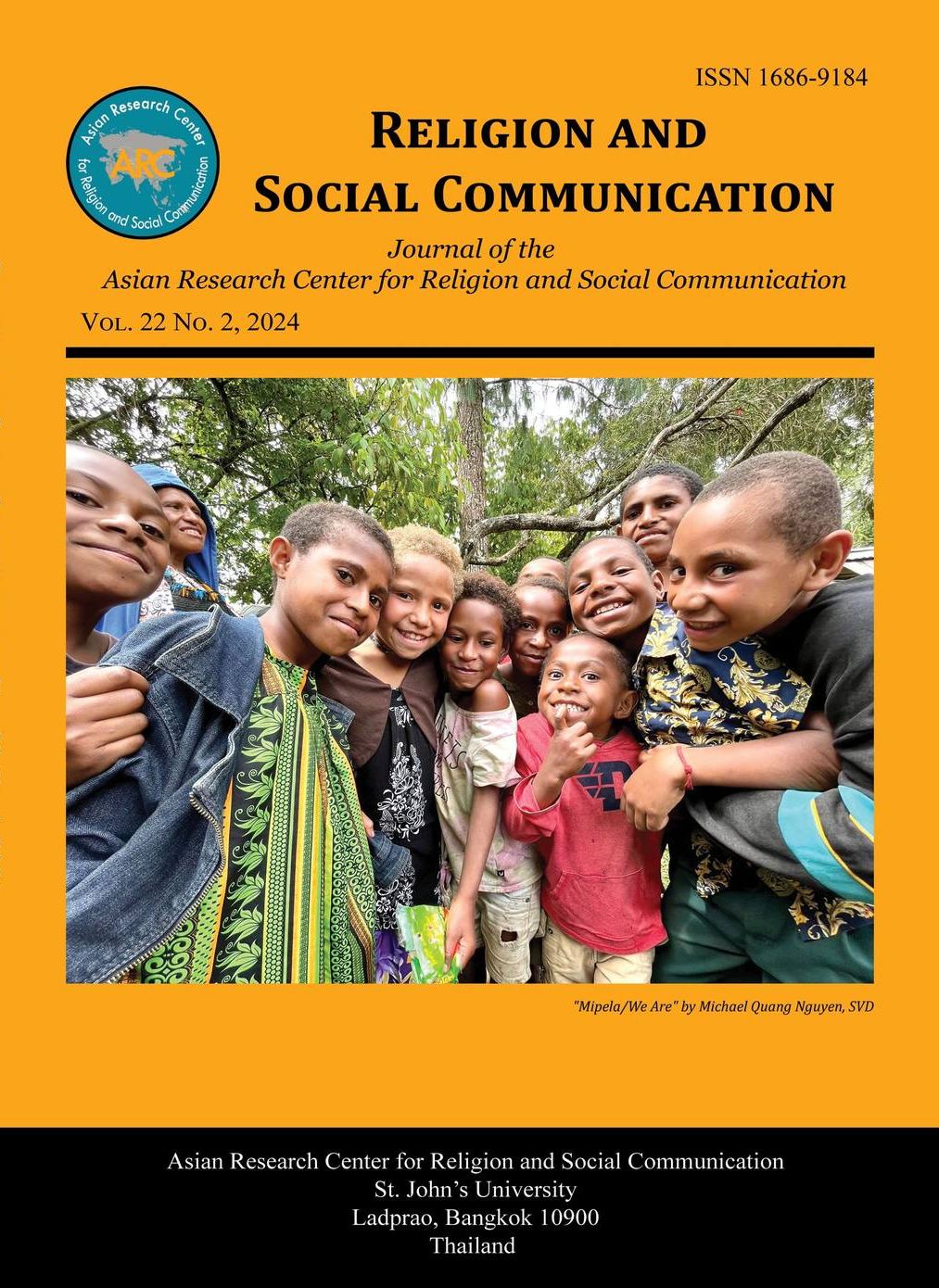[BOOK REVIEW] Ecoflourishing and Virtue: Christian Perspectives Across the Disciplines
RELIGION AND SOCIAL COMMUNICATION VOLUME 22, NO. 2 (2024)
ISSN 1686-9184
Author
Ivan Efreaim A. Gozum
Book Reviewed
Steven Bouma-Prediger and Nathan P. Carson. Ecoflourishing and Virtue: Christian Perspectives Across the Disciplines. Rout-ledge: London and New York, 2024, 288 pp. ISBN: 978-1-032-38750-5 (paperback)
Pages 474-477
DOI: https://doi.org/10.62461/IEG220224
The concept of ecoflourishing emphasizes how nature and humans may coexist harmoniously and grow together. Beyond maintaining the current status quo, fundamental sustainability improves the environment’s and people’s welfare. To the greatest extent possible, ecoflourishing aims to establish conditions that support the flourishing of ecosystems and human civilizations. Ecoflourishing requires an understanding of the interdependence of all living things. This view encourages environmental responsibility and stewardship as vital aspects of human existence. Looking at this issue, the problem of the environment is a concern that demands everyone’s attention.
For this reason, different disciplines are asked to participate in helping the environment. Due to environmental concerns’ complexity and multifaceted nature, solutions must include knowledge and strategies from various academic disciplines and the corporate and public sectors. It is crucial to remember that taking an interdisciplinary approach to environmental issues is beneficial and necessary. We may comprehend environmental concerns more thoroughly and effectively by combining the knowledge and techniques of several fields. This strategy makes it possible to craft creative, just, and long-lasting solutions, eventually improving the resilience and long-term health of both natural and human systems.
The book Ecoflourishing and Virtue: Christian Perspectives Across the Disciplines, edited by Steven Bouma-Prediger and Nathan P. Carson, is an attempt to understand our ecological responsibility from a comprehensive point of view. The book is primarily an antho-logy of essays exploring the relationship between ecological sustain-ability and Christian ethics. The book aims to thoroughly explain how Christian virtues can direct and motivate ecological responsibility and action. As said in the editors’ introduction, the book explores how eco-logical virtues might support the flourishing of our home planet amid unparalleled environmental change and disaster. The book addresses this issue by bringing together the multidisciplinary insights of Chris-tian researchers and scholars. In this way, the approach is interdisciplinary and, at the same time, very reflective since it points out the experiences and ideas of diverse luminaries.
As provided by the editors, the book’s central questions are: What virtues are needed for us to be better caretakers of our home planet? What vices must we extinguish if we are to flourish on the earth? What is the connection between such virtues and vices and the flourishing of all creatures?
To answer these questions, the editors were able to combine viewpoints from the social sciences, environmental science, philosophy, and theology. The contributors provided reflections and narratives to visualize the context of the environmental situation. The book crafted starting points for an ecological response through the lenses of philosophers, theologians, and scientists. Through this, this multidisciplinary approach emphasizes how intricate ecological problems are and how important it is for various areas to work together. Applying Christian virtue ethics to environmental challenges is one of the book’s central themes. The authors contend that cultivating an ecologically sustainable and prosperous existence requires humility, fairness, love, and stewardship.
Each chapter offers a perspective on ecological virtue ethical dilemmas through the lenses of several academic disciplines, including literature, philosophy, theology, geology, biology, and economics. The chapters address world problems and perspectives, present poignant, poetic analyses, and highlight distinguished scientists’ contributions and life lessons reflecting on a lifetime of environmental effort. The anthology encourages new thinking and action by addressing significant contemporary environmental challenges such as ecological racism, interfaith communication, ecological philosophies of work and economics, marine pollution, ecological despair, hope, and humility. It emphasizes how human vices and virtues fuel many ecological issues and solutions. It will interest anyone in philosophy, ethics, theology, religious studies, and environmental studies.
The essays in the book also examine how biblical teachings and Christian theology provide a foundation for ecological responsibility. They discuss concepts like care for creation, the intrinsic value of nature, and the moral obligation to protect the environment. The book also emphasizes the practical applications of Christian values in resolving ecological problems. It addresses sustainable practices, environmental legislation, community involvement, and lifestyle modifications supporting ecological responsibility and consciousness. Numerous contributors discuss the links between social inequality and environmental deterioration. They advocate for justice and fairness in ecological practices, highlighting the necessity of an integrated strategy considering the welfare of vulnerable people and the environment. The importance of moral and spiritual development in fostering an ecological worldview is emphasized throughout the text. It looks at how Christian activities like worship, prayer, and community service might help people become more aware of and receptive to environ-mental challenges.
While the book offers insightful information about the relationship between environmental sustainability and Christian ethics, some areas could be further developed. Expanding the scope of disciplines could improve the discussion, providing a more thorough grasp of the connections between environmental and social challenges. Theoretical explanations are thorough, but the principles could be more applicable and valuable if there were additional case studies and real-world examples. Concrete examples of ecoflourishing in action would be provided by communities or organizations that have effectively incorporated Christian virtues into their environmental operations.
To sum up, the book offers hope despite its severe critique of ecological issues. It invites readers to picture a future in which human well-being and ecological flourishing are interwoven, sustained by faith-driven action, and inspired by Christian virtues. “Ecoflourishing and Virtue” offers insightful information and helpful advice for people who want to connect their faith with environmental care. It makes a strong argument for integrating Christian ethics with ecological issues. The book has been thoughtfully and engagingly edited by the editors, Steven Bouma-Prediger and Nathan P. Carson, to challenge and encourage readers to think about their role in building a just and sustainable world. To end, I hope this book will help readers reflect on their ecological responsibility so that we can all strive to care for our common home – the environment.





![[Book Review]David Thang Moe. Beyond the Academy: Lived Asian Public Theology of Religions.](https://asianresearchcenter.org/storage/image/2025/06/cover-for-web-1749467974.jpg.160x96.webp)
![[Book Review] Mary Frohlich. The Heart at the Heart of the World: Re-visioning the Sacred Heart for the Ecozoic Era](https://asianresearchcenter.org/storage/image/2025/01/cover-final-1735893887.png.160x96.webp)